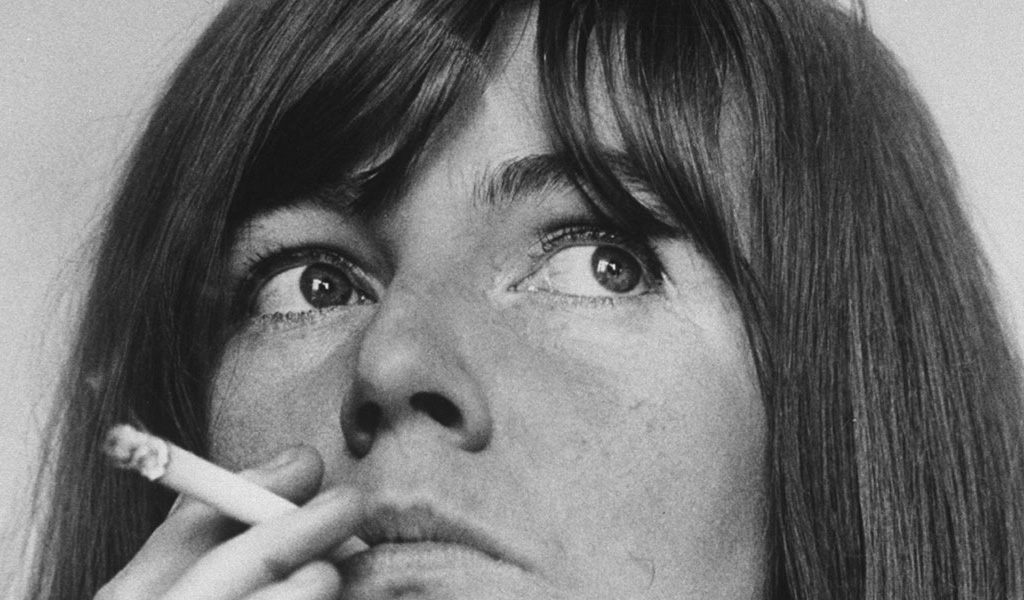The greatest tribute that Sinéad O’Shea could pay the great author Edna O’Brien in “Blue Road: The Edna O’Brien Story” is to find so much in her voice. When the writer could so readily bring readers into the Irish countryside that she knew well with enlivening detail, O’Shea can’t count on extended passages from books such as “The Country Girls” and “The Girl With the Green Eyes” to play like explosive set-pieces in an action film, but the director finds the depth in how O’Brien actually expressed herself outside the pages of her novels, allowing the audience to experience how the timbre of her voice changed throughout her 93 years when mixing interviews O’Brien gave throughout her life to a sit-down of her own conducted in the months before the author’s death this past July as part of a running commentary in addition to recruiting Jessie Buckley to read from her journals, with the feisty star of “Wicked Little Letters” relishing every zesty adjective.
“Blue Road” unfurls as smoothly as vivid descriptors rolled off O’Brien’s tongue, making the fact that nothing else ever came easily to her all the more apparent and admirable. Introduced as a bon vivant whose pad in London became a legendary spot for soirees, O’Brien escaped a conservative upbringing in County Clare where the only book kept in her house was a Bible. It isn’t exactly that her perspective on the past dramatically changes over the years, but when O’Shea draws on her recalling the same memories at different levels of distance from them in the voiceover, there’s a real texture as one might experience from reading her work as you come to understand how she was curiously drawn to find life in inanimate objects and gradually started to reinvent herself, believing she could be a writer after buying a copy “Introducing James Joyce” with an introduction from T.S. Eliot and realizing the characterization of a Christmas dinner could have taken place in her own home.
The odds were against O’Brien when male authors dominated the literary scene in Ireland and, as Gabriel Byrne is on hand to describe, loathe to invite her into the same pubs. However, after parlaying a successful magazine column written under a pseudonym into a chance at a proper novel, she found success outside her native country, moving to England and being embraced in North America while continuing to write about life back home and growing into womanhood at odds with her surroundings. O’Shea seizes upon the idea that O’Brien was always somewhat in exile, ultimately ending up renting a home in her final days when money dried up, but constantly having to carve out spaces for herself that weren’t entirely welcoming, whether it was being embraced in Ireland only after her work started to gain international traction and never an equal partner in her marriage to Ernest Gébler, who found early success as an author, but came to resent O’Brien as her star grew a few years after being married in 1954.
Their union becomes the centerpiece for the film as the couple’s two sons Carlo and Sasha Gébler detail a tempestuous partnership in which O’Brien had to sign over her paychecks for her novels to Gébler, only receiving a small percentage in return, and O’Shea find yet another playful way to deploy voiceover when O’Brien’s journals were written over at times by Gébler, who is given voice by Declan Conlon and begins dueling with Buckley (though good luck with that). After their separation in 1964, the film only gains momentum when O’Brien fully enjoyed the swinging ‘60s, when Richard Burton was known to knock on the door of her flat and she’d hang out with Marlon Brando, yet was disappointed that all he’d want to do was drink milk. Despite the famous names in her social circle thrown about, it’s clear O’Brien was always the life of the party, and being unafraid to speak her mind made her popular talk show guest and interview subject, giving O’Shea a wealth of material to let he author speak for herself.
“Blue Road” gathers appreciations of O’Brien’s work that will make those unfamiliar want to dig in to her books and sports a truly moving appearance from “Devil in a Blue Dress” author Walter Mosley, who happened to find a way to a class she was teaching at City College in New York when she turned to academia to support herself. But the timing of the documentary’s production with O’Brien’s main interview scheduled for August of 2023 and picked up eight months later when her energy started to wane with a hospital visit in between, surely gave all involved a sense that this might be the final word on her career while she was still alive. It feels unusually definitive as a result, perhaps having to severely condense some periods of her life such as spending the early 1990s with her “State of the Nation” trilogy confronting the issues in Northern Ireland, but brisk, considerate and to the point in such a way that reflects O’Brien’s temperament as much as the life she led. When portrayed as a bit of a movie buff who was delighted to have a few of her books adapted for the screen, O’Brien can rest easy that she was finally given the star treatment she deserved.
“Blue Road: The Edna O’Brien Story” does not yet have U.S. distribution.




